
12 Different Types of Parenting Styles and Child Discipline Strategies
In this article on different types of parenting styles, you'll get to read about:
- The 5 most powerful parenting styles around based on high-level philosophies of life and deep insights into love: positive parenting, attachment parenting, unconditional parenting, spiritual parenting and slow parenting
- The scientific approach to 4 other famous parenting styles partially defined by developmental psychologist Diana Baumrind: authoritative parenting, authoritarian parenting, permissive parenting and uninvolved parenting
- Three examples of unfortunate parenting approaches with detrimental long term consequences: narcissistic parenting, helicopter parenting and toxic parenting.
Introduction to the First 5 Parenting Styles!
- 5 Modern Parenting Philosophies Based on High-Level Awareness
The first 5 types of parenting styles that I will present here are personal recommendations as I find them rich on:- High-level awareness and consciousness along with a keen eye for the Big Picture and long term goals!
- Deep presence, intimate connection and unconditional love!Mutual respect, full acceptance along with basic trust in children, their abilities, skills and knowledge!
The types of parenting styles that I'm referring to (and that you may read more about below) are positive parenting, attachment parenting, unconditional parenting, spiritual parenting and slow parenting.
1) Positive Parenting
What Is Positive Parenting:
The Scientific Origin of Positive Parenting:
Positive parenting as a formalized parenting philosophy is actually a relatively new phenomenon. Positive parenting draws its main values, insights and theories from one of the latest newly accepted scientific branches of psychology, positive psychology.
Positive psychology as an institutionalized scientific discipline was coined in 1998 by American psychologist Martin Seligman.
Positive psychology, also nicknamed happiness psychology, is basically a psychological study on the essence of human happiness, fulfillment and meaningfulness. What characterize genuinely happy and satisfied people and how do they get there?
As a therapeutic strategy positive psychology is more interested in looking into to the future - possibilities, goals and abilities - rather than just focussing on the past - trauma, illness and pain.
In practice this means helping people finding their inner strengths, skills and desires rather than just focusing the more traditional themes of emotional pain, trauma and illness that had reigned in the practical field of psychology until now.
Positive psychology does not advocate completely discarding the focus on the past but recommends a balance thus including a focus on the future (which the traditional therapeutic discipline tends to ignore).
In other words the focus in positive psychology is on building and growing rather than just repairing.
Characteristics and Goals of the Positive Parenting Approach:
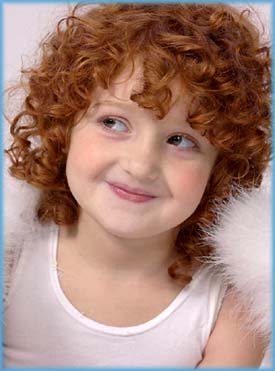
Along similar lines to positive psychology, positive parenting is about empowering children.
It's about unconditional support which will powerfully fuel their self esteem so as to prepare them to get the most out themselves and of life.
Positive parenting is thus fuelled by the belief that complete fulfillment and deep satisfaction result from being authentic to the potentialities of the self.
This goal of full self-actualization is best considered done with a conscious and consistent focus on minimizing our own personal biased ambitions on behalf of our children and instead support their interests, help them find their potential and practice guiding them rather than just teaching them.
Rather than imposing strict rules, preaching dos and don'ts and teaching, positive parenting focuses on guiding or in more 'therapeutic' terms, coaching.
Positive parenting is about supporting children via guiding, mapping out and brainstorming which help our children acquire the skills of choice making, mentally juggling and considering possibilities and being aware of the fact that actions have consequences.
This was the first brief description of the first types of parenting styles in the category of high-level parenting philosophies. Let now move on to the second brief article on parenting styles, attachment parenting.
2) Attachment Parenting (Also Known as Intuitive Parenting or Natural Parenting)
What is Attachment Parenting:
The Scientific Origin of Attachment Parenting:
Attachment parenting is a parenting style coined and developed by professor in pediatrics, Dr. Sears. The parenting philosophy of attachment parenting draws on British psychologist John Bowlby's 1940s and 1950s cutting edge studies of early child separation behavior, child grief and caregiver attachment.
In his research John Bowlby abandoned the prevailing psychoanalytic mindset put forward by Anna Freud and Melanie Klein and developed his own groundbreaking attachment theory.
Attachment theory was empirically refined by developmental psychologist Mary Ainsworth who conducted the famous lab research study "The Strange Situation" experiment where she delineated the the four infant attachment styles of secure attachment, avoidant attachment, ambivalent attachment and insecure attachment.
The healthiest attachment style with the most desirable and positive outcome is secure attachment, which is also the goal of attachment parenting.
Characteristics and Goals of Attachment Parenting:
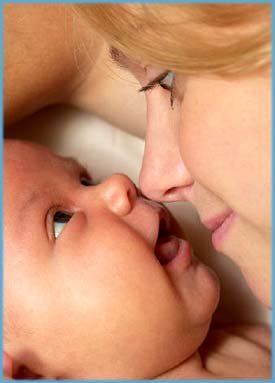
The aim of attachment parenting is to strengthen the intuitive, psychological and emotional bond between the primary caregiver, typically the mother, and child.
Attachment parenting is rooted in the belief that if an infant's emotional and physical needs are quickly and consistently responded to and met, the child will be likely to build a positive attitude to life believing that he or she is unconditionally loved, that the world is a good place and people mean well and can be trusted.
Various research studies have proved that a basic sense of emotional and existential security is a crucial corner stone in healthy child development.
This high focus on meeting needs is best done by very close attachment between caregiver and child.
The logic is that the more you tune in to, bond with and connect with your child, the better you will know your child and thus the more quickly you will be able to read your child, understand and fulfill his or her needs.
Dr. Sears strongly opposes the traditional view that always meeting your child's needs as quickly as possible results in spoiled and dependent children.
He believes the complete opposite is true: That the more and the quicker you meet your children's need, the better and the faster you prepare them for healthy independence.
3) Unconditional Parenting (Also Known as Conscious Parenting)
What is Unconditional Parenting:
The Scientific Origin of Unconditional Parenting:
The term unconditional parenting is coined by author Alfie Kohn and stems from his book published under the same name. 
Unconditional parenting is based on the therapeutic principles of the unconditional positive regard.
Treating a child from the philosophy of an unconditional positive regard means accepting and supporting the child no matter how he or she behaves or what he or she says.
The child will thus gain an experience of being valued for who he or she is regardless of whether his or her actions are approved of or disapproved of.
The unconditional positive regard was coined by the famous therapist Carl Rogers. In short, Carl Rogers believed that raising a child in the spirit of the unconditional positive regard is necessary for the child to be able reach full growth and unhindered self-actualization.
According to Rogers, a typical and widespread hindrance to full self-actualization is "conditional positive regard", also known as praise.
When a child is praised for accepted behavior, the child comes to equate his or actions with his or her self worth.
Thus in order to feel accepted the child will show 'good' behavior - not because it feels good as such but because the child has learnt that good behavior leads to approval and attention.
Thus the child's motivation for 'being good' is externally based rather than originating from within!
Characteristics and Goals of Unconditional Parenting:
Alfie Kohn's unconditional parenting takes the unconditional positive regard a step further by launching what many people would consider a rather provocative discussion of parental control.Basically he says that threats, punishments as well as praise - also known as positive reinforcement parenting - are basically tools of manipulation aimed at controlling our kids with a weapon of love: Meaning if you behave I will show you love and if you don't I will not show you love.
According to Alfie Kohn such traditional parenting strategies of manipulation create the belief in our children's mind that they have to work for our affection and that the showing of love is conditional (meaning dependent on something - an action).
Alfie Kohn therefore strongly urges us to show our love unconditionally rather than conditionally so that our children learn that they are loved for who they ARE rather than what they DO.
In this way the spirit of unconditional parenting is about encouraging our children to work their way into their natural character rather than trying to change who they are in order to feel accepted, appreciated and admired.
4) Spiritual Parenting / Holistic Parenting
What Is Spiritual Parenting:
The Origin of Spiritual Parenting:
As you can imagine
spiritual parenting does not have a root in science as such.However, spiritual parenting can be said to have roots in modern teachings of eastern spiritual philosophy which is known for a focus on raising inner awareness, appreciating that which IS and being deeply connected with everything in the Now.
Spiritual parenting is thus not about worshipping a specific God or Goddess or about adhering to a specific formalized religion.
It's not fluffy or airy.
Rather the opposite, actually. It's really quite down to earth.
It's just about Being, full acceptance and seeking deep interconnectedness!
Characteristics and Goals of Spiritual Parenting:
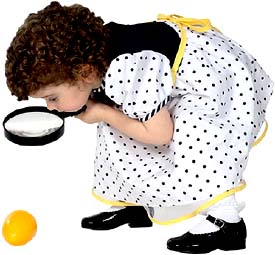
Spiritual parenting is about respecting each child's individuality and create the space for each child to develop his or her own beliefs based on his or her unique personality and individual potentials.
Doctor and spiritual teacher Deepak Chopra says that the best way to raise highly aware and conscious children is by example.
Simply be that what you want your children to be!
Don't teach role models, be a role model yourself.
Don't preach rules and behavior, be whatever you want your children to learn and experience!
And I couldn't agree with him more!
5) Slow Parenting (Also Known as Nurturant Parenting)
What Is Slow Parenting:
The Origin of Slow Parenting:
Slow parenting is a reactionary parenting response to the both the stressful rat race mentality and suffocating, overprotective tendencies of modern western parenting. The term "slow parenting" is a term that has been created on the basis of Carl Honoré's book Under Pressure: Rescuing our Children from the Culture of Hyper-Parenting.
Carl Honoré doesn't actually coin the term but he is the one responsible for the inspiration behind the philosophy of slow parenting.
Here is Carl Honeré's definition of "slow" (taken from this interview): ""Slow" in this context does not mean doing everything at a snail’s pace. It means doing everything at the right speed. That implies quality over quantity; real and meaningful human connections; being present and in the moment."
In this way Carl Honoré opposes the modern tendency of constantly rushing things to be a step ahead. This is not only stressful for us, the parents, but our constant battle with time also affects our children and impedes their natural desire to explore the world at their own pace.
Rather than being focussed on life as an end in terms of results, competition and prestige, Carl Honoré recommends that we focus on life as a process or journey which makes it about Being, loving and exploring.
Characteristics and Goals of Slow Parenting:
The overall goal of slow parenting is to provide the space for children to find their own interests and hence grow into the persons they are supposed to be.Here are some typical characteristics of slow parenting strategies:
- Making sure that there enough time in the family schedule for everybody to spend time together, alone or whatever is felt for or needed.
- Stepping back and allowing children to take certain risks in order for them to get to know themselves, their abilities and limits better.
- Few organized activities. Rather it is encouraged that children use their own creativity when playing.
- Exploring and using the resources of Mother nature. Exploring the woods, playing outside in the garden etc.
- Limited use of television as it viewed as installing passivity in children and doesn't spark the imagination as e.g. book does.
- Simple toys rather than complex electronic devises. The philosophy behind this piece of advice is that the more simple the toy is, the more the child is forced use his or her creative mind in the play process.
Introduction to the Next
4 Parenting Styles!
Diana Baumrind's Parenting Styles
The next types of parenting styles are not modern parenting 'movements' or philosophies in the same way that positive parenting, attachment parenting, unconditional parenting, spiritual parenting and slow parenting are. The types of parenting styles below are a result of developmental psychologist Diana Baumrind's 1960s study of the dominant white middle class types of parenting styles.
These parenting styles thus represent a picture of typical and widespread ways of parenting rather than recommended or consciously chosen ways of parenting.
I will present these different types of parenting styles very briefly as I have written extensively about Baumrind's 3 parenting styles elsewhere on this site.
6) Authoritative Parenting
The authoritative parenting style was Diana Baumrind's clear favorite and today it remains the recommended parenting style by most traditional, mainstream, western parenting experts.
According to Diana Baumrind's studies, and many parenting studies made since then, authoritative parenting is the parenting style that has been most consistent terms of being associated with positive outcomes for children: high level of self esteem, good academic performance, well-developed social skills, good emotional control etc.
As a parenting style, authoritative parenting is characterized by high behavior control (demandingness) and high parental responsiveness (warmth).
Typical traits of authoritative parenting are:
- A child discipline strategy that includes demands for children such as assigning house chores!
- Children are basically expected to as they are told. Thus they are raised in a spirit of disciplined conformity, general obedience and sticking to the rules!
- Authoritative parents have a relatively flexible mind where they make use of what may be termed rational control: There are rules but they have to
make logical sense!
- Relative freedom of choice. This parenting style encourages independent thinking and give and take discussions. However, the parents will typically always have the last say!
- Being warm, responsive and striving towards meeting the children's physical as well as emotional needs
7) Authoritarian Parenting

The authoritarian parenting style is the parenting style that Diana Baumrind (and other child experts) has linked with the most unfortunate consequences for children's healthy social and emotional development.
As a parenting style, authoritarian parenting is characterized by high behavior control (demandingness) and low parental responsiveness (warmth).
Typical traits of authoritarian parenting are:
- A value and belief system characterized by predictability and conservatism
- Adhering to a strict family hierarchy of authority and submissiveness
- Consistent upholding of rules and no parent child discussions
- The parents encourage suppression of emotions while at the same time being aggressive and having a short fuse.
- A mental mindset that is characterized by rigidity and black and white world view.
- Harshness and insensitivity in social relations.
- Rules, order, punishment and strict discipline.
8) Permissive Parenting (Also Known as Indulgent Parenting)
The consequences of the permissive parenting style are seen as less severe than the authoritarian but not as ideal as the authoritative parenting style.
Typical objections to the permissive parenting style is that it may lead to spoiled or bossy children, who act like this because they feel insecure as they have never learnt any boundaries and have never had any demands.
Other research studies claim that children of permissive parents tend to engage more in problematic experimentative behavoir as teens and young adults.
As a parenting style, permissive parenting is characterized by low behavior control (demandingness) and high parental responsiveness (warmth).
Typical traits of permissive parenting are:
- Advocate of free development and encouragement of independent thinking!
- Practicing a flat family hierarchy structure and relative role equality between parents and child.
- Meeting needs and being warm, responsive and caring.
- Do not favor overt control techniques and punishments but are more subtle and uses manipulative control measures such as bribery and praise.
- Tends to be evasive of conflicts, harmony orientated and encourages give and take discussions.
- Non-restrictive child discipline strategy.
9) Uninvolved Parenting / Neglectful Parenting
Maccoby and Martin later added a fourth dimension to the parenting styles already defined by Diana Baumrind. Apparently they did this so they could complete the picture of control and responsiveness.
Thus the uninvolved parenting style is thus characterized by low behavior control (demandingness) and low parental responsiveness (warmth).
Typical traits of uninvolved parenting are:
- Meeting physical needs but neglecting emotional needs.
- Being mentally distant and disengaged in their children and in their lives.
Introduction to the Next 3 Parenting Styles!
Unfortunate Parenting Styles
The next types of parenting styles represent what are perceived as unfortunate tendencies in modern parenting that have unhealthy, even damaging consequences for children. 10) Helicopter Parenting / Overparenting

What Is Helicopter Parenting:
The Origin of Helicopter Parenting:
The term helicopter parents was coined by Jim Fay and Foster W. Cline in their work "Parenting with Love and Logic: Teaching Children Responsibility".The interesting metaphor of helicopter parents effectively illustrates the main characteristics of these parents: In someway shape of form they always keep their children at very close range, constantly 'hovering' above them trying to make sure that no harm will come to them.
The overprotective strategies of helicopter parents are driven by fears 'losing'; A basic fear all parents have but which here is grown out of proportion, so to speak.
Helicopter parents react on their fear by taking a very protective to their children which consequently means an aggressive stance towards the world.
Basically they distrust their children's ability to take care of themselves and they are afraid that if they don't keep a tight control with everything, harm will come to their children.
Characteristics of Helicopter Parenting:
Helicopter parents are well-known in the school system - and it's not a positive form of fame.Helicopter parents are known to be constantly intervening on the parts of their kids and covering for their mistakes.
They may even go as far as to completing basic tasks such as school work, job applications and phoning up their college kids in the morning to make sure they get up for class.
Helicopter parents are know for having a very hard time letting go of their children and being overengaged and overconcerned resulting in children who have become unfamiliar with the concept of risk and basic consequences of their actions.
11) Narcissistic Parenting
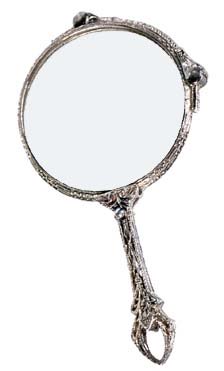
As the term implies narcissistic parents are driven by their own needs.
They live on and are addicted to a constant delivery of food for their for their ego.
They pace their children to succeed and excel as they have come to identify with the accomplishments of their children.
In other words, their children are typically not perceived as individuals that are entitled to their agenda but as personal extensions of their own identity.
Narcissistic parents thirst for external recognition and acceptance and unconsciously use their children as a means to live out dreams and fantasies they themselves never got to realize.
The narcissistic parenting strategy is characterized by a plethora of various control mechanisms that are used to make their children pursue the goals of the parent. Thus then children of narcissistic parents are left with very little space to discover their own interests and potentials.
12) Toxic Parenting
Toxic parenting is basically a blanket term for all the various types of parenting styles that can be labelled poor parenting.
Thus narcissistic parenting, even helicopter parenting, may be labelled toxic as the parents' needs come before the child and ends up - to more or less extent - 'poisoning' the child.
Toxic parenting range from neglecting children's needs to direct physical, emotional, and sometimes even sexual abuse.
The existential and long term effect of toxic parenting may be devastating as it may entail a complete disruption of the child's self image and sense of worth
How does such self worth bereavement happen?
The children come to believe that their parents' abusive or neglectful behavior is a reflection of their worth as human beings.
Thus these children unconsciously rationalize that, "There's a reason that Mom or Dad behaves this way. It must have something to do with me. I must have earned this treatment and therefore I must be inherently bad."
This means that children who have suffered from toxic parenting often come to struggle with severe guilt complexes and a very, very poor level of self esteem.
The behavior of toxic parents may range from physical abuse such as corporal punishments, sometimes sexual assault or emotional unavailability or love withdrawal.
I hope this article on parenting styles was of use to you, if you wish to go into depth about certain types of parenting styles, please, dive into one of my article below or use the navigation bar that you will find on your left if you scroll up.
Your Positive Parenting Ally,
Birgitte

Want to stay in touch and get the latest news?
Sign up
for my free newsletter
Parent Coaching
- For Inner Peace, Clarity and a Deeper Connection to Your Child
 Being a parent can feel like a double-edged sword. Life with kids may feel like the greatest gift you have ever received, while at the same being hugely challenging, often leaving you confused, stressed and overwhelmed.
Being a parent can feel like a double-edged sword. Life with kids may feel like the greatest gift you have ever received, while at the same being hugely challenging, often leaving you confused, stressed and overwhelmed.
When we feel like this, we've lost touch with ourselves. We can't hear our own inner voice, and it's difficult to know what is 'right' for us and how to act.
I offer in-depth parent coaching to help you regain your balance and get back in touch with yourself. From a place of inner peace and clarity, your will find your own answers which will help you reconnect with your child from a place of unconditional love and acceptance.
Read more about my parent coaching here.
Where Would You Like to Go Next?
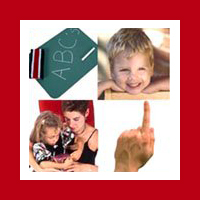 Your Parenting Style: Deep Insights into What Determines Your Parenting Style! |
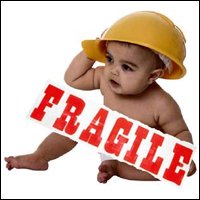 Helicopter Parents and Overprotective Parents: The Truth and Sharp Essence of the Modern Phenomenon of Overparenting. |
 Deep Insights into Narcissistic Parents: Going Behind Their Controlling Behavior and Mapping Out Its Long Term Consequences. |
 Why Well-Meaning Parents Use Controlling Behavior and Become Controlling Parents! Understanding the Essence of Control and the Common Misuse of Power. |
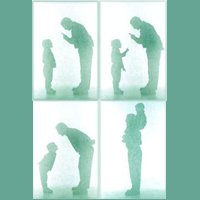 The Advanced Parenting Style Quiz to Learn Who You Are as a Mom or Dad. |
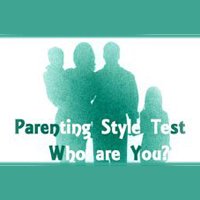 Take an Intelligent Parenting Style Test and Determine Your Parenting Style with This Free Personality Quiz for Parents. |
Back to the top of this page about 12 Different Types of Parenting Styles and Child Discipline Strategies
Go to the Positive Parenting Ally Homepage







